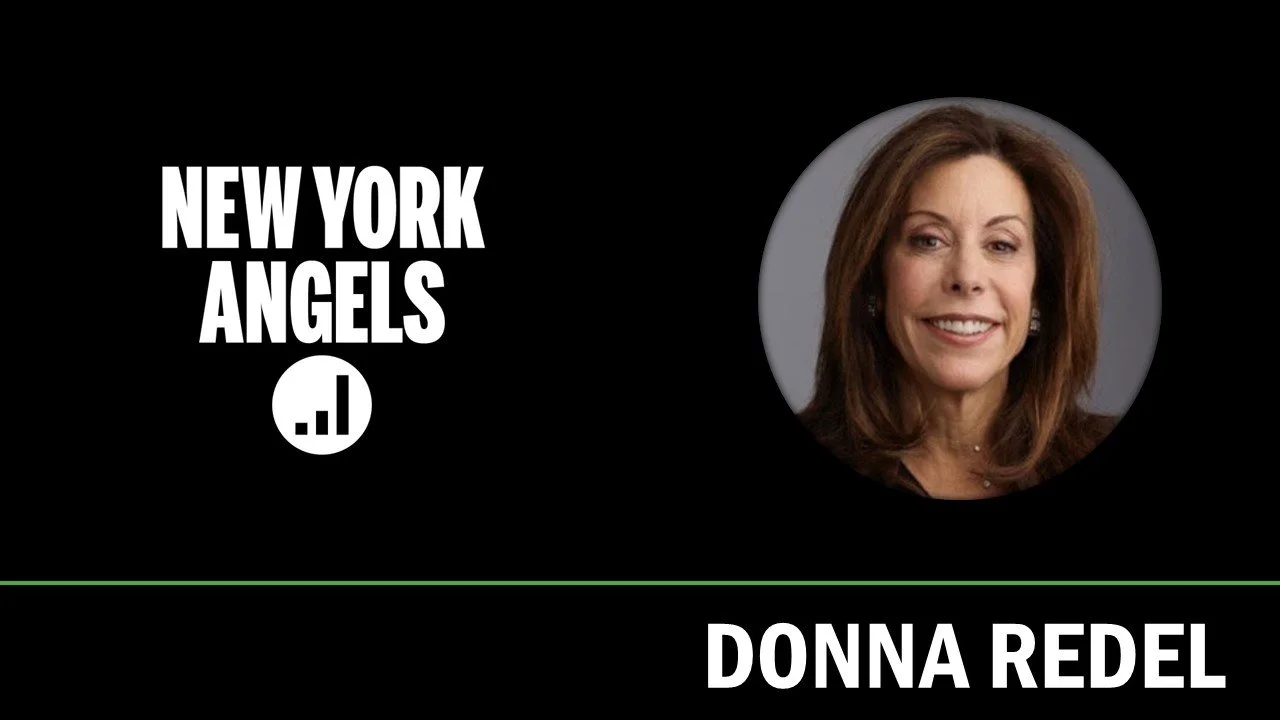DONNA REDEL ‒ NYA MEMBER SPOTLIGHT
Donna Redel joined New York Angels in 2014 to explore deal opportunities with a diverse, accomplished membership. As someone who has taken on innovative assignments and often been a “first mover,” particularly as a woman in Fintech, Donna brings an incredible wealth of knowledge to NYA as a Board Member. Donna shares why it's important for founders to have a few trusted mentors when fundraising, how she helps contextualize tech innovations, and why dancing is an important part of her life.
How did you meet New York Angels, and why did you decide to join?
I joined New York Angels in 2014. Before that, I was investing with Golden Seeds, which is a great organization; however, I wanted more diversity in both membership and deal opportunities, which led me to New York Angels. There was also some overlapping membership, so it seemed like a natural progression.
New York Angels and angel investing is a way to utilize skills (e.g., financial, legal, personal skills) that one has developed over a long period of time. NYA Members have had significant experience in past businesses and other enterprises, and they bring all that expertise into evaluating and recommending investments, as well as helping to shepherd our portfolio companies to success.
What has been your most memorable experience as a New York Angel?
It’s hard to pinpoint a single moment because my experiences are really a composite of nearly a decade of involvement. New York Angels has grown a lot over these years. Each of the chairs and the leadership bring dynamic changes to many aspects of the organization during their respective tenure. When you’re a member of an organization for ten years, you also have seen so many people join and leave. Overall, witnessing the organization’s evolution has been what is most memorable.
What expertise do you bring to New York Angels?
I bring a perspective on financial technologies and how they fit within broader landscapes. I am not a hardcore tech person, but I understand how to contextualize tech innovations. Additionally, I think my mentoring has made a difference to many people – both founders and other angels.
What do founders appreciate most about working with you?
You would have to ask them! I think they value that I am attentive without being overbearing. I try to play a gentle advisory role, connecting founders with people or pathways that could help them, rather than being heavy handed.
What do you look for when you are investing in a company?
The founder is important. A good founder needs to have a solid command of what their company is doing, a clear vision, and a comprehensive understanding of competitors and industry trends. I commonly invest in Fintech, so I look for new innovations that are revamping traditional parts of the Fintech space.
What advice would you give founders starting to fundraise?
Find a few trusted people to guide you through the process and don’t obsess over valuation – especially in the early stages of fundraising. Focus on finding good people involved in your raise, as they will be invaluable when you may need support or connections.
What differentiates companies that you see at Screening versus those who make it through to Due Diligence?
It often comes down to their ability to present well and field questions effectively.
When you look at your past investments, what do you think is most critical for founders to be able to deliver a successful exit?
Adaptability is crucial because the environment, technology, and competition are constantly changing. Founders need to be flexible and thoughtful in responding to those shifts.
What is a little-known fact about you?
I love music, and I love to dance! My mother was a ballet dancer, so I think that is where my love for movement and music comes from. Music has a way of lifting stress and evoking emotions, and I find it has helped me in both my personal and professional life.
What drives you?
In general, I like to learn new disciplines. When someone tells me about something that is new to me or I don’t understand, I try to learn as much as I can in that area. I remember when I became Chair of the Commodity Exchange and there was a joint venture between the Chicago Mercantile Exchange and Reuters to be able to trade overnight. At the time, in 1990, the traders were understandably terrified of this partnership because trading all occurred on the floor of the exchanges. I knew it was just a matter of time before trading floors were not essential. As Chair, I wanted to provide opportunities as the world was rapidly reshaping the industry.
Another example is in blockchain. I have a friend, Tessy who is a German engineer, and she kept talking about blockchain many years ago. I knew what a “block” was, and I knew what a “chain” was, but “blockchain” was foreign to me. She asked me to join her for a Meetup for women in blockchain, and I agreed. To my surprise, the meeting was hosted at J.P. Morgan, where clearly many people already knew what blockchain is. After many years of focusing my energy on learning about blockchain technology, I teach the subject at Fordham Law and Wharton and speak globally to help share what I have learned with others, as well as help shape global policy around digital assets.


